From 70 Hours to 70 Seconds: A Record Shatters in NYC
Bearing witness to Tunde Onakoya and Shawn Martinez's record-breaking 64-hour chess session
Time seems to slow down as you get lost in a chess position. It feels like seconds have passed, till you look up and see your fifteen minutes are up. Losing the sense of time can create an addictive flow state. Or it can be a burden: playing chess well requires so much time.
What if time became the goal itself? A timed chess contest becomes a chess time contest. Chess masters Tunde Onakoya and Shawn Martinez took on that challenge, from April 16-20, right in the center of Times Square.
To break the previous Guinness World Record for the longest chess session of all time (61 hours, 3 minutes and 34 seconds), they planned to play 70 straight hours. Under Guinness World Record rules, the players were allowed five-minute breaks per hour, which could be accumulated for longer breaks, even a power nap. To help stave off boredom, they alternated between two-minute “bullet” games, and five-minute “blitz” games.
Shawn and Tunde knew this would be difficult. Their first attempt last April lasted 58 hours and earned global attention from AP and the BBC to the NY Post, but the record was short-lived. It was eclipsed a little over a month later by Norwegian podcasters Askild Bryn and Odin Blikra Vea, a star-studded attempt that featured guest stars like Magnus Carlsen.
The only solution for Shawn and Tunde? Do it again.
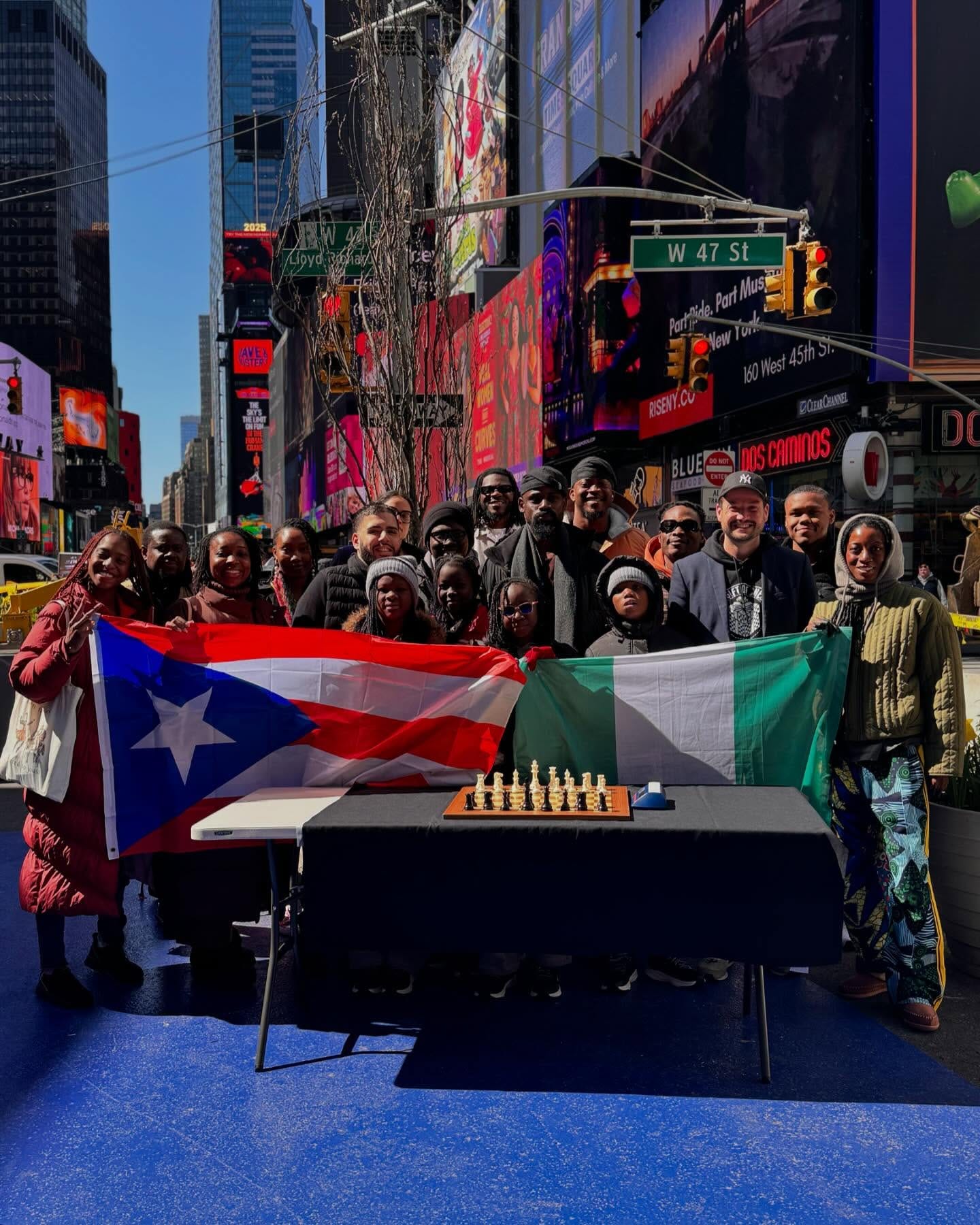
I’ve been a fan of Tunde and his work since I first learned about his ground-breaking mission in 2020. I immediately knew he was destined for great heights. Beyond his work ethic and chess skill, he’s a natural storyteller with the heart and the mind to match his ambitions: to inspire a million children through chess and to create the largest school for homeless children in Nigeria.
This marathon’s goal went beyond breaking records and inspiring New Yorkers. Tunde, Shawn and their teams are raising funds to educate vulnerable children, in lockstep with the work of the Gift of Chess and Chess in the Slums. Five kids from their program participated in the marathon, playing for several hours each day. They included Ivie Urieto, who I met at the Cross-Cultural Girls Club and Ferdinand Mamuo, a student with cerebral palsy whose chance encounter with Tunde in April 2021 has led to thriving academic and international chess career.
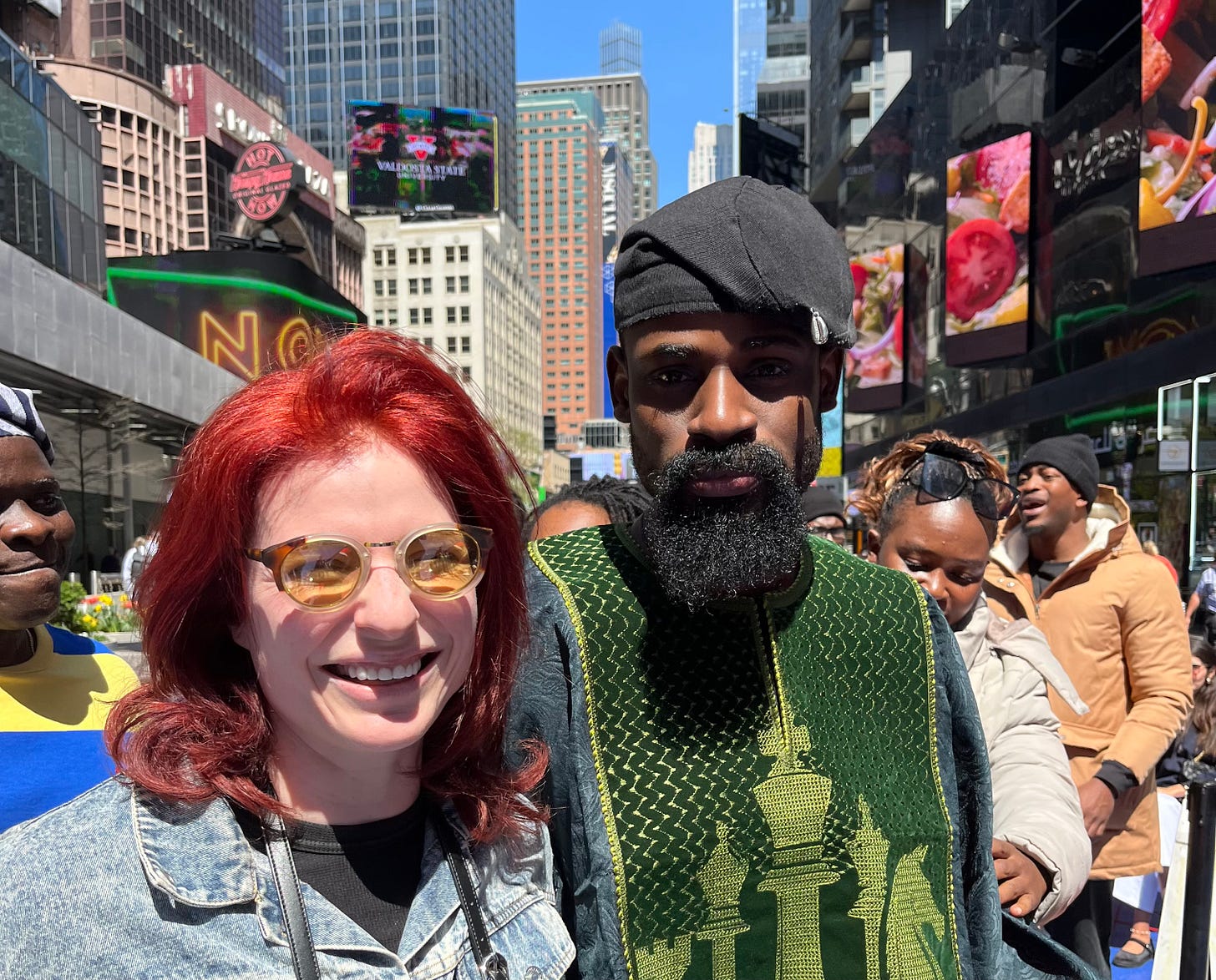
Meeting Tunde in person was overdue and meaningful. We weren’t allowed to talk much, due to the strict rules of Guinness World Record attempts. But I was honored to bear witness to the record—literally. To make sure the rules are being strictly adhered to, two witnesses must be present and paying close attention at all stages of the marathon. My shift was about 24 hours in, on Friday morning. It was a tough time for Shawn and Tunde: too early to feel monumental progress, but late enough that they were already exhausted. Ultra-marathoner and poker pro Dara O’Kearney says that the hardest part is about 70% into a race: enough to be bone tired, but not enough to get that “it’s almost over” boost.
Shawn, a dad of newborn twins, was struggling when we visited, but I believed he’d pull through. I’ve known Shawn since he was a kid, and I even coached him when he was in Junior High. Since then, he has given my son Fabian dozens of lessons. He helps instill the importance of discipline and effort. “Sit up”, he tells Fabi when coaching him. It wouldn’t seem like posture matters when solving chess positions on an ipad, but it does. He practices what he preaches: as tired as Shawn was, he always sat up for the next game.
I brought Fabian to the show, and he was immediately hooked. The first thing he said was “Can we stay till the end?”
As an official witness, I was one of many moving parts that made sure the record fit Guinness World Record rigorous standards. Even just sitting for two hours to fulfill my duties was challenging. I had too much morning coffee and was bursting by the end! I thought of Cory Booker and laughed at myself, feeling a little pathetic for struggling for such a short time frame. It just goes to show: any type of distance or time can be difficult if you don’t prepare for it.
Endurance Challenges
I’ve always been interested in endurance art. One of the most famous pieces in the genre is Marina Abramovic’s 736 hour long performance, The Artist is Present (2009), in which attendees sat silently across from her. When I first saw it, I immediately thought of chess. Telepathic chess. I know you see it!
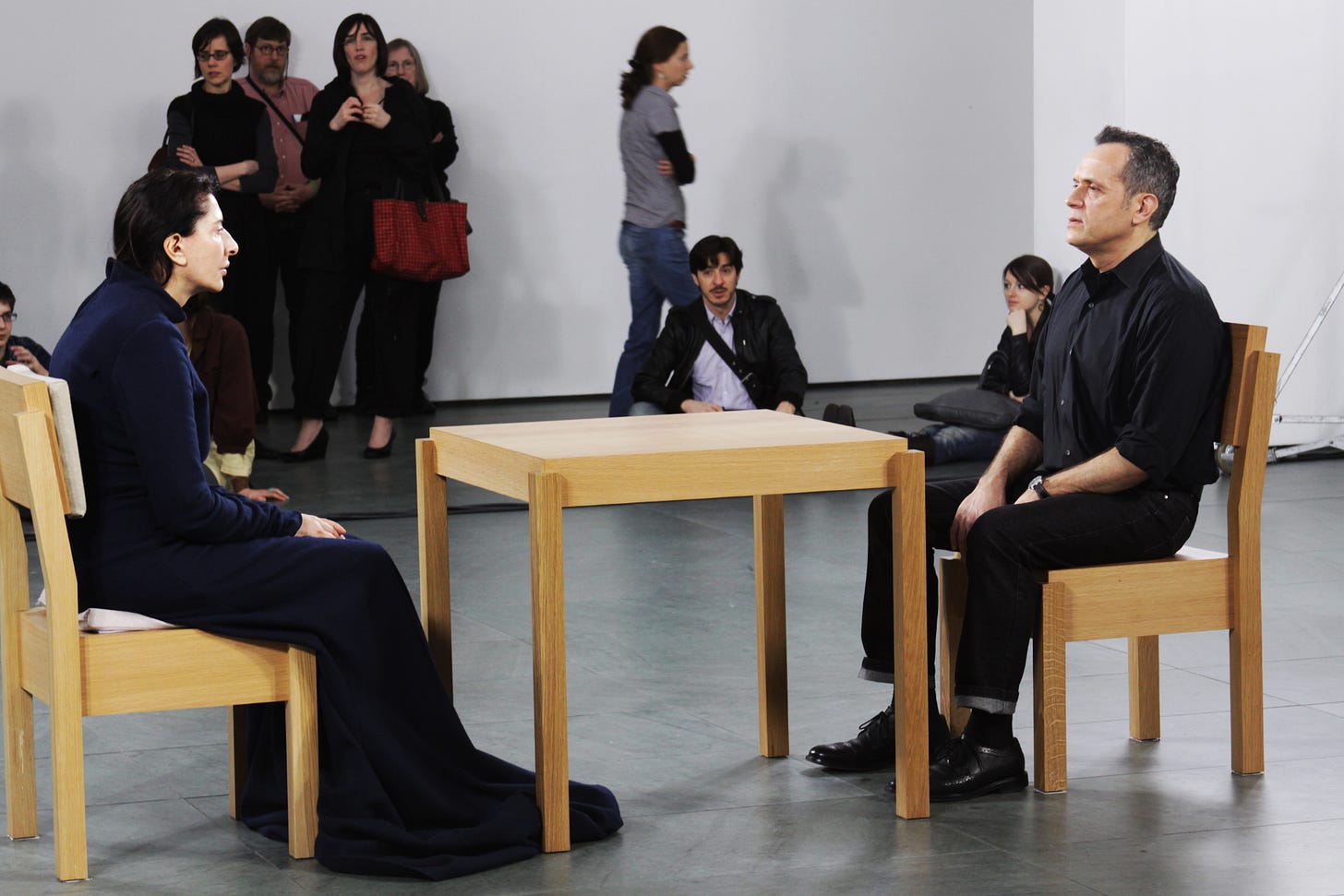
Magician David Blaine has taken on mind-boggling endurance challenges, like Frozen In Time (2000), where he was stuck in a box of ice in Times Square for 63 Hours, 42 Minutes and 15 Seconds. Just steps and minutes away from the record Shawn and Tunde would set.
Time Games
Fabian and I were inspired by Tunde and Shawn to play our own time game, lit up the sights and lights of Times Square. We called ours the 70 Second Challenge. Our goal was to correctly guess the amount of time passed while playing chess. The winner is the person who shouts TIME closest to 70 seconds.
I saw a similar challenge in the Beast Games competition TV show1. In the Red Ball challenge, blindfolded contestants hold on to a red ball, and drop it after they believe exactly ten minutes have passed. The players who get closest to the exact time without the buzzer going off advance to the next stage. Many players got incredibly close—the winner even dropped the ball less than a second before the buzzer.
I thought our challenge would be difficult because playing chess makes a running count tough. Indeed, I almost always called out “TIME” well before the 70 seconds were up. When you’ve been playing chess seriously for decades, it’s easy to forget how much you can pack into a short period of time. This allowed Fabian to out-wait me and “win” the time portion of most of our games. Interestingly, he played some of the best blitz chess I’ve seen him play. The distraction of a time goal made him play more naturally.
After we left New York, we continued to watch the record setting attempt on Twitch. When we went to bed, Shawn and Tunde were playing. When we woke up, Shawn and Tunde were playing. That night, we watched them some more. And then we woke up Sunday morning. Shawn and Tunde weren’t playing anymore. They’d broken the record. They stopped after 64 hours, an hour for each square of the chess board.
For marathon highlights and replays, follow the Gift of Chess and Tunde, and see full challenge information at https://www.cisatundegwr.com/
See my previous pieces on this in Yale and the Beast: Adventures in Game Theory.
Yale and the Beast: Adventures in Game Theory Part II
In the first part of Adventures in Game Theory, I wrote about the Yale Open Courses, the 2/3 the Average game, and a challenge in the controversial Beast Games TV show.


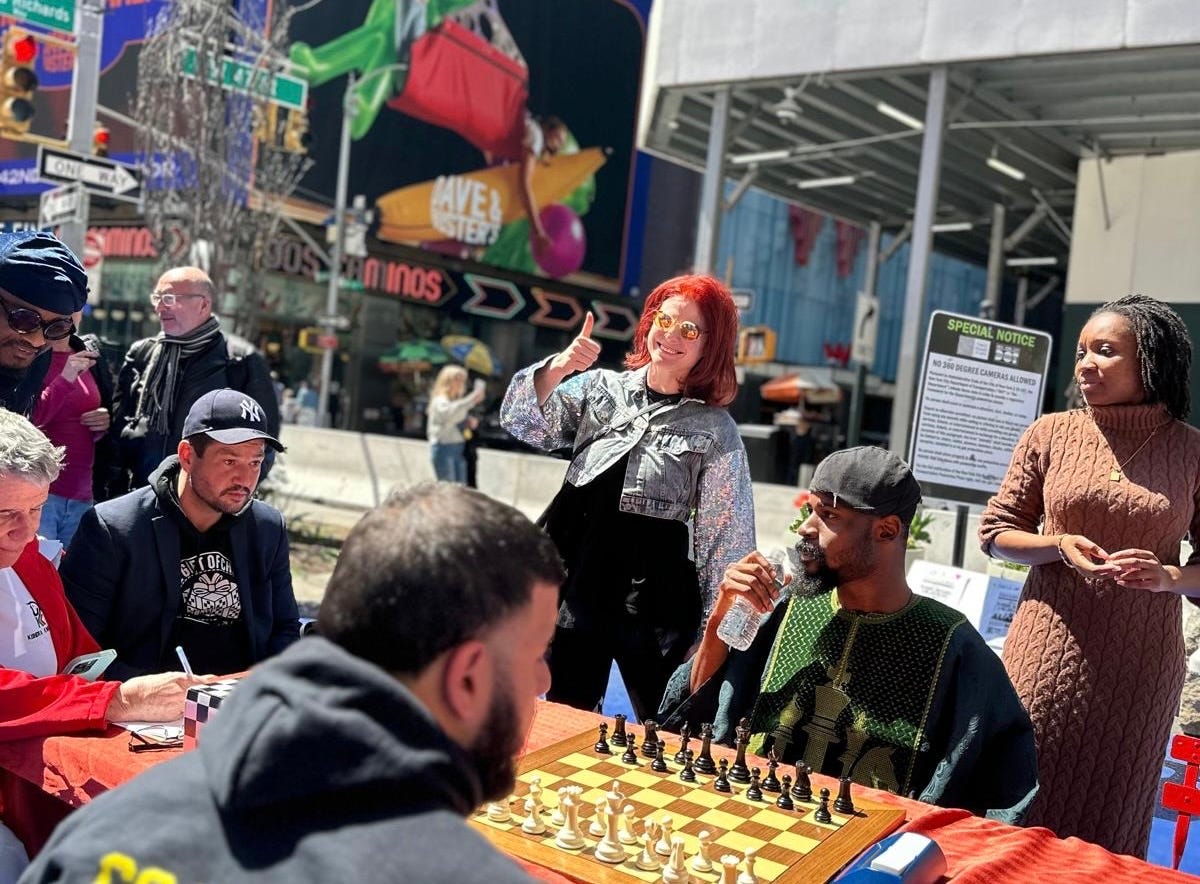
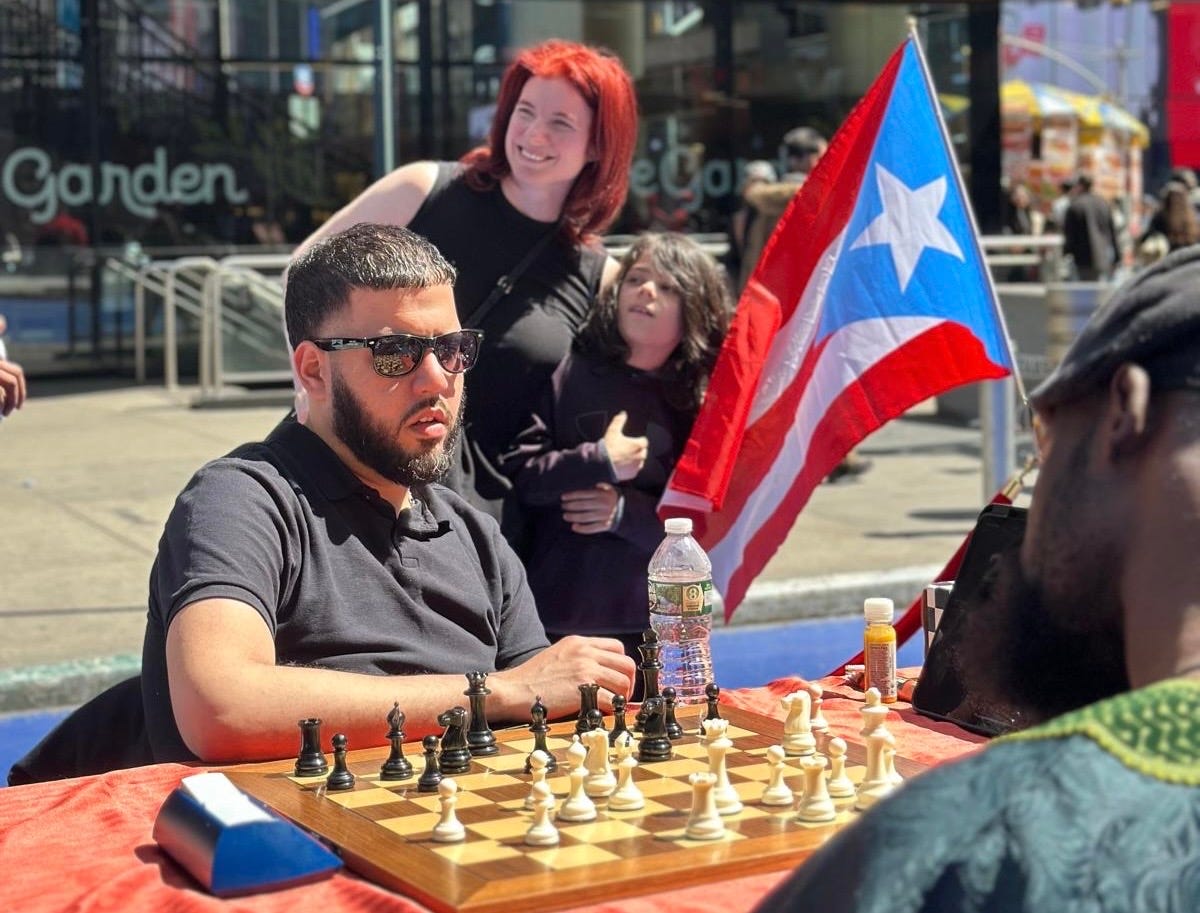

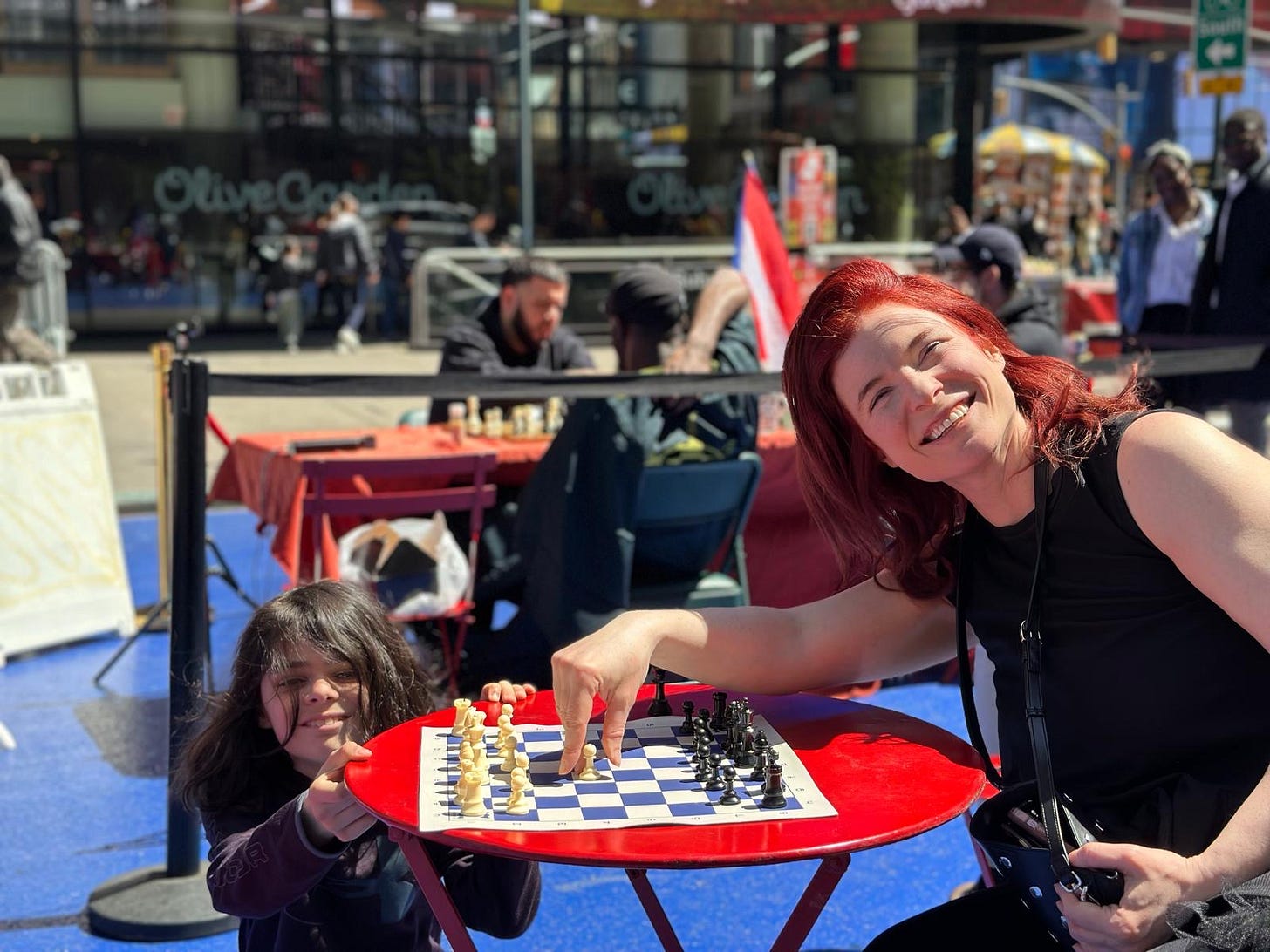
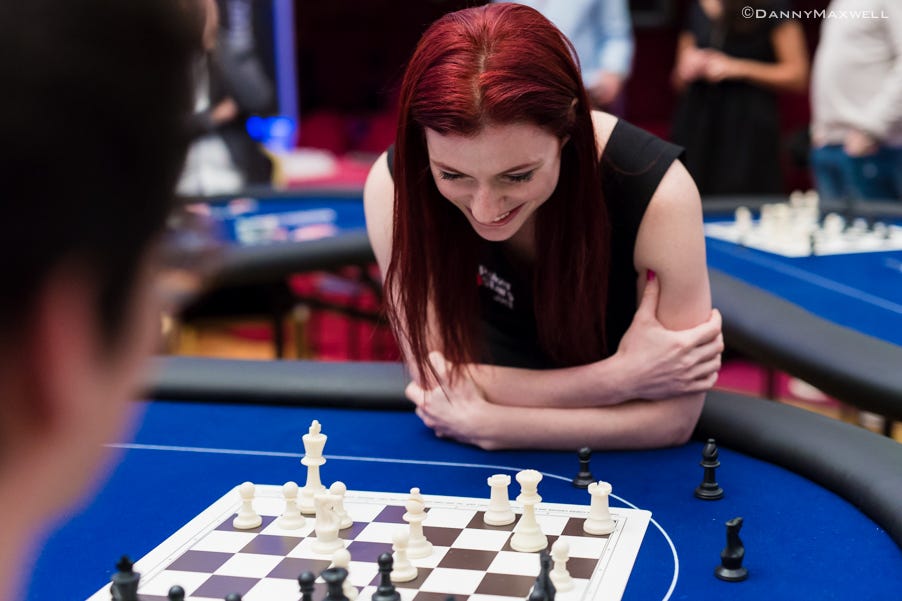
Great perspective on time 70 seconds to 70 hours 😀
I’ve also been following Tunde’s journey! And I really like the 70-second game.